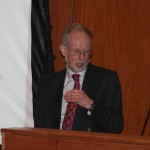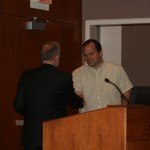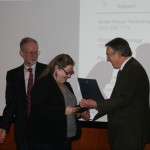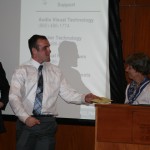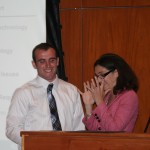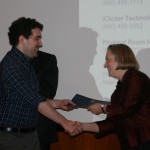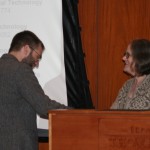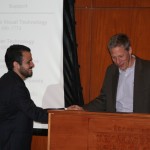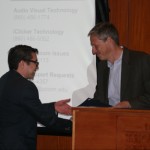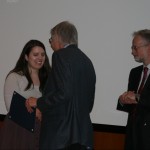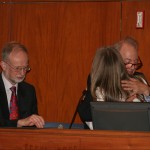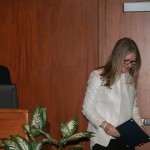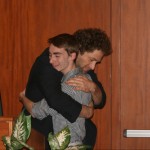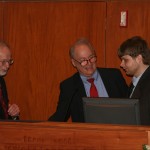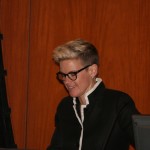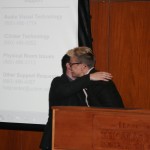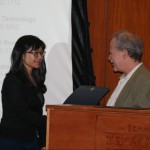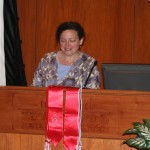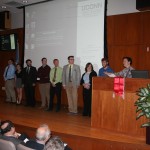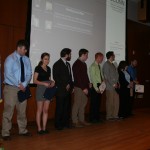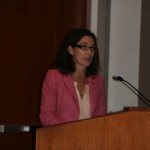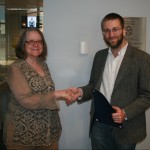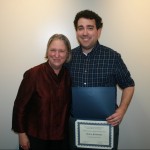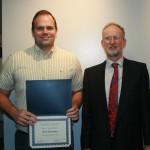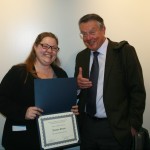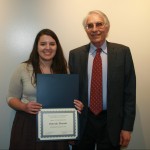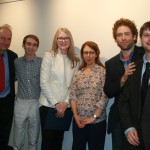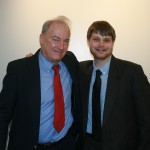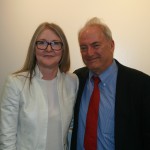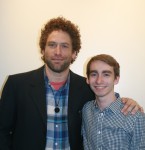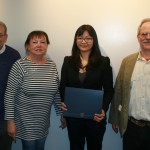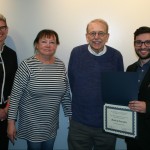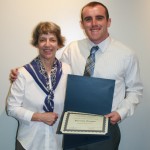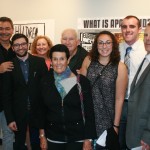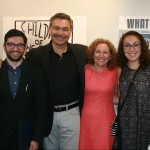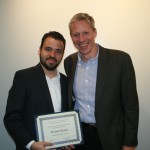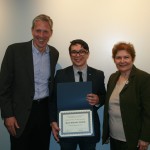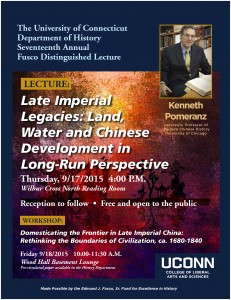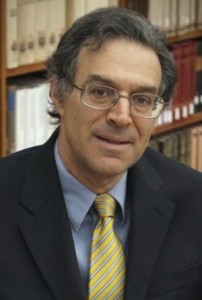The History Department again celebrated outstanding student achievement on Friday, April 29th in the annual History Prize Day Ceremony and Phi Alpha Theta Initiation with students, faculty, staff, donors, family and friends. With the generous support of the UConn Foundation and our donors, eighteen scholarships, prizes, and fellowships were awarded to sixteen deserving undergraduate and graduate students with remarks from faculty nominators and presenters. Eight new students were also inducted into the Phi Alpha Theta National History Honors Society for 2016, followed by keynote address “Facts n’ Stuff: Why History Helps” given by Prof. Alexis Dudden.
The 2016 History Prize Day Award Winners
- Thomas G. Paterson Graduate Fellowship in the History of U.S. Foreign Relations: Frances Martin
- Harry J. Marks Fellowship: Erik Freeman and Jessica Strom
- Undergraduate History Excellence Award: Harrison Fregeau and Christopher Sacco
- Roger N. Buckley Award: Harrison Fregeau
- Graduate Student Teaching Excellence Award: Kevin Finefrock
- Connecticut Celebration 350th Scholarship: Nathan Braccio
- Hugh M. Hamill Graduate Fellowship in Latin American History: Orlando Deavila
- Albert E. & Wilda E. Van Dusen Scholarship: Jorell Melendez-Badillo
- Andrew W. Pyper Scholarship: Gabrielle Westcott, Katherine Hoskin, and Jeremy Timperanza
- Karl Z. Trybus Undergraduate Award for Exceptional Work in Modern European History: Zachary Stack
- Bruce M. & Sondra Astor Stave Prize in Recent American History: Matthew Guariglia
- Abraham and Faye Astor Scholarship: Yang Zheng
- Allen M. Ward Prize in Ancient History: Eric Medawar
- Albert E. and Wilda E. Van Dusen Award for Undergraduate Study and Travel in the Fields of Ancient Greco-Roman History and Classical Languages: Eric Medawar
The 2016 Phi Alpha Theta Initiates
Eric J. Mooney
Donovan P. Fifield
Gregory P. DiVito, Jr.
Collin C. Anderson
Kayla W. Gervino
Lynsey Grzejszczak
Joseph A. Hutton, Jr.
Zoe R. Kaufman
Julia Garavel
Ryan E. Kogstad
Duane Yuhas
Simon T. Walker
Samuel D. Surowitz
Robert A. Stickel
John H. Kelly
